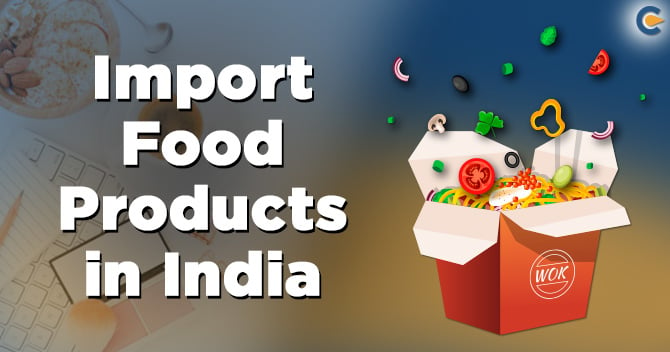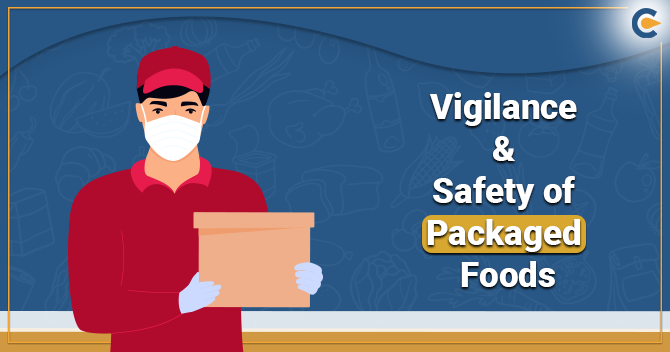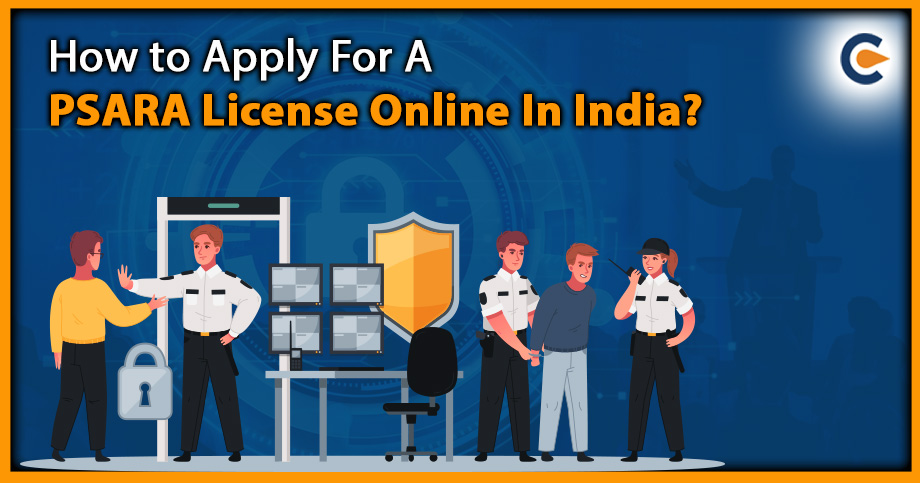In order to import food products in India, importers must get an FSSAI certificate. The growth of food products business in India has been phenomenal in a few decades. Since India has always been popular as the heaven for food lovers, people of India are satiating their gustation buds with exclusive sumptuous delicacies of other countries in their nation.
The availability of food, as well as beverages of other countries in India, has served the people with a wide variety of food items and beverages of different kinds as well.
The Indian government has set regulatory bodies to import food products in India. FSSAI is the regulatory body that has established norms with respect to the import of food products in Indian boundaries. Also, the apex controlling authority, FSSAI, keep changing the criteria by bringing amendments in the guidelines. Following the guidelines and standards fixed by FSSAI is essential for businesses and entrepreneurs before taking further steps to import food products in India.
All the businesses, as well as entrepreneurs devising strategies to import food products in India, must comply with the FSSAI rules and regulations. Non-compliance with the FSSAI guidelines would lead to rejection of their consignment.
Licenses and Registrations Prior to Import Food Products in India
With the intent to import food products in India, obtaining these registrations and licenses are the first and foremost priority.
Given below are the mandatory licenses and registrations for importing food consignments to India-
LLP or Private Limited Company
Although it is not mandatory to obtain, it is valuable in the way that it upgrades the business transferability and set limits on personal liability.
Importer Exporter Code from the DGFT Office
The requirement of Importer Exporter Coder from the office of Director General of Foreign Trade is for import or export of goods.
GST Registration
Registration of GST is crucial for selling goods or products in India.
FSSAI Approval
FSSAI approves those imported food products that conform to the FSSAI guidelines. Furthermore, Authorities won’t be giving approval to those imported products which are not in accordance with the food standards set by FSSAI.
Other Licenses and Permits
Other licenses and permits like Import Permit, Certification of Origin, Sanitary Import Permit, Analysis Certificate with Ingredients, etc., are also relevant for importing food products in India.


Essentials to Become a Registered Food Importer
The following essentials would help you in becoming a registered food importer-
- Get your business registered as a partnership, sole proprietorship, and public limited or private limited company.
- Importer Exporter Code (commonly known as IE Code) circulated by DGFT (Director General of Foreign Trade)
- VAT Registration with associated authority for sale at the domestic level
- FSSAI operates an automated FICS (expanded as Food Imports Clearance System). An importer can take charge of registering the essential compliances under the Food Imports Clearance System or clearance of customs on his own, or also he may look for hiring a Custom Handling Agent for the same.
- If the food products that would get imported fall under the category of non-standardized products, product approval from FSSAI will be the requirement.
Read our article:What are the Responsibilities of Food Business Operators in India?
Stages for Clearance before the Import of Food Products
- The Department of Customs needs to clear Application for Custom Clearance.
- Application of NOC or Provisional NOC to FICS, i.e., Food Import Clearance System of FSSAI.
- All the documents must get examined as well as supported by the FSSAI Authorized Officer or other authorized persons working in the department.
- After the visual inspection of the consignment, Authorized Officer associated with FSSAI need to inform the date along with the time of the visual inspection, which should get duly acknowledged by CHA/importer.
- Analysis of laboratory samples collected should take place, meeting pace with the parameters and standards. It must be in accordance with FSS Act 2006.
- Issuing of No-objection Certificate or Provisional No-objection Certificate by FICS of FSSAI.
- After the allotment of No Objection Certificate by FICS of FSSAI, the consignment gets customs clearance for the purpose of use or sale in the confines of India.
Steps to Import Food Products in India
If an importer is all set to import food products in India, he should follow the steps given below-


Customs Department Clearance
Importing food business operators should prepare a Letter of Authority in favor of a CHA, i.e., Customs Handling Agent directing FSSAI or Authorized Officer before the arrival of food consignment via air or seaport in India. At the time consignment arrives, the Customs Handling Agent on the basis of Letter of Authorization will apply for the consignment clearance with the Customs Department based on the Bill of Entry. Thereafter, a government Custom Agent will proceed with the verification of the consignment and go on clearing the same after the Customs Formalities Clearance and Customs Duty Payment.
FSSSAI Clearance
After acquiring clearance from the Customs Department, the Customs Handling Agent needs to file an application in the FICS of FSSAI to attain the No Objection Certificate.
Mandatory Documents for FSSAI Clearance
- IEC (Importer Exporter Code Registration) allotted by the DGFT
- FSSAI Food Business License/FSSAI Registration
- Examination Order Generated by Electronic Data Interchange System of Customs, demanding NOC from FSSAI in it
- Bill of Entry
Additionally, there is a requirement for additional documents like Import Permit, Certificate of Origin, Sanitary Import Permit, Phyto-Sanitary Certificate, End-Use Declaration, Bill of Lading, and more documents in the hours of importing food products in India.
Inspection & Sampling of the Consignment
- Along with the mandatory documents, an application would get created in FICS. FSSAI Officer will take the responsibility of verifying the submitted documents. In case of the application’s acceptance, the importer would have to deposit fees for the FSSAI Clearance. The FSSAI will verify and inspect the consignment on a fixed time and date.
- After Visual Inspection gets over, the FSSAI officer will pick two samples from the consignment and draft them for testing purposes. From the two samples, one properly sealed and labelled food sample will be allotted to a laboratory selected on a random basis made by the FICS. If the need arises, the second food sample will get stored in proper conditions for re-testing.
- The Authorized Officer will send the samples of imported food to the laboratory for analysis as per the FSS Act guidelines[1]. The lab must send its report to the Authorized officer in the time limit of five days along with the opinion regarding the product tested as conforming or non-conforming.
Food Product Approval
No Objection Certificate or Non-Conformance Certificate will get dispensed by the Inspector if the accredited laboratory circulates a report of an approved conclusion that asserts that a food consignment complies with the FSSAI controls. Finally, the food products would get the clearance for import in India and also would get discharged from the Traditional Distribution Center.
Is FSSAI Central License a Prerequisite to Import Food Products in India?
In order to provide assistance to the food businesses, most of the importers are getting food products from various countries to satisfy Indian consumers’ demands. There are several guidelines that all the importers should know to import food products in India.
- The question of the initial level for them is if the FSSAI License a requirement for importers. The government has made the implementation of the IE Code granted by DGFT for import or export of any product.
- Along with that, an FSSAI License is mandatory for food business operators. The process through which you can apply for the FSSAI Import License is too easy.
- The government fees for FSSAI Central License for one year are Rs 7500, and as a validity period, one can get up to five years. It’s necessary to grasp all the regulations and guidelines of the government to be an authorized importer.
Conclusion
Any individual or business planning to import food products in India from outside the boundaries must understand the FSSAI regulations and procedures. On the path to import food products in India, food business operators and entrepreneurs are acquiring relevant documents like Importer Exporter Code, FSSAI License, and other permits and licenses. Importers need to understand the requirement to become a registered importer of food. Before arriving into the Indian market, food products must follow all the steps for clearance.
Read our article: A Detailed Guide on Penalties under FSSAI Act











